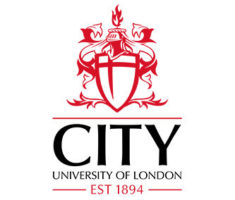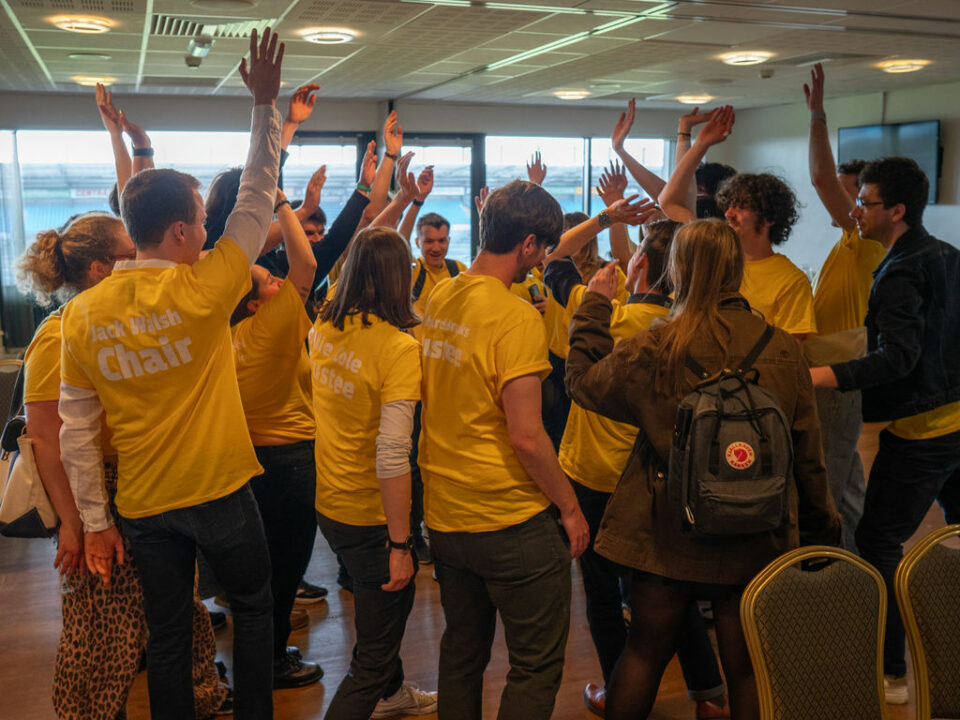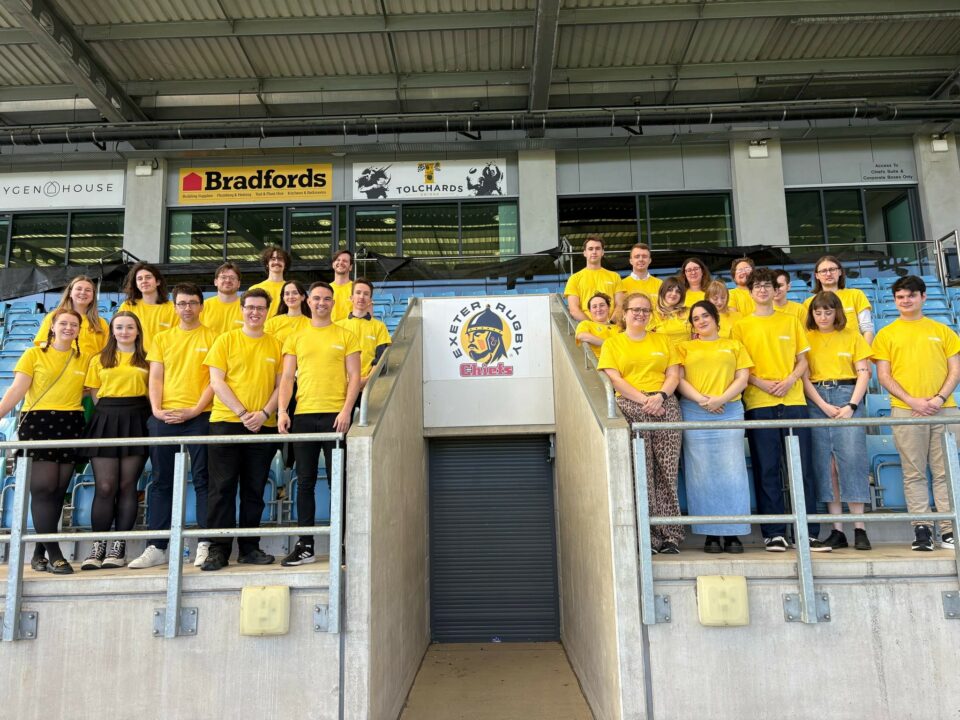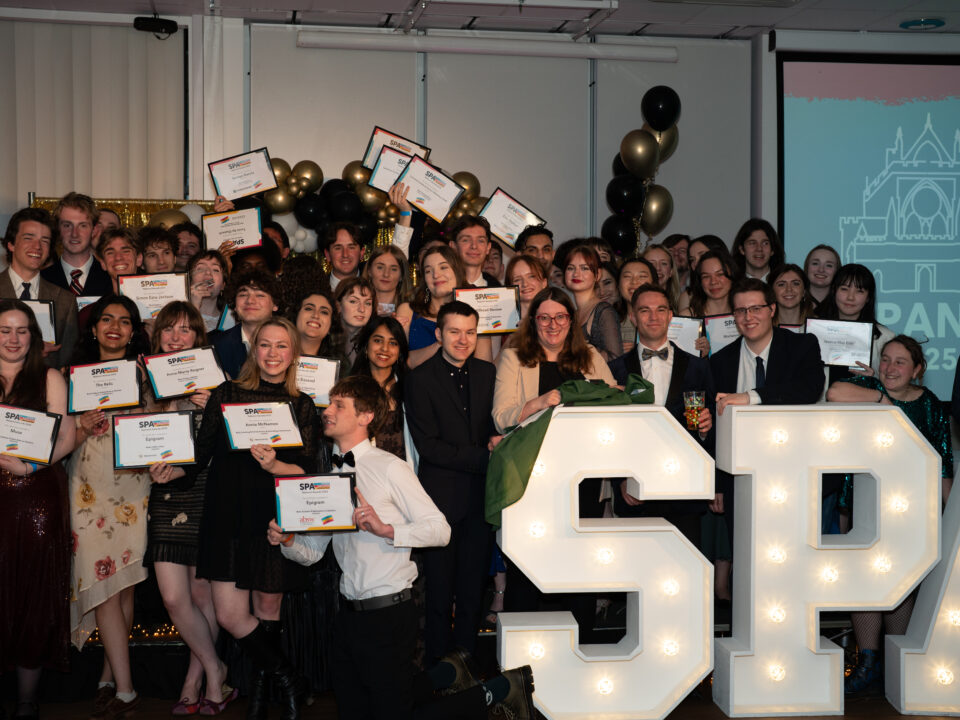
Don’t let the cost put you off a journalism masters
Splash Sunday – 14/01
My Christmas work experience, experience
It was approaching Christmas and I was preparing to enjoy lots of chocolate, alcohol, films and TV, family gatherings - and a bit of studying when I find could the motivation. And then I read an interesting article that SPA chair, Dan Falvey, shared on social media about the Christmas period being a good time to try and break into local journalism. Staff often take some time off work around Christmas and the New Year and so newspapers are likely have a spare desk or two and appreciate the extra help if you're willing to work hard, roll up your sleeves and get stuck in.
I couldn't fault the article's logic and so, in carpe diem style, I emailed the editors of my local newspapers attaching my CV, a couple of references and three articles I'd had published. I made my pitch, offering to do anything and everything that would be of help to them. As luck would have it, within 24 hours, I got a phone call from a local news editor who said they had a spare desk and invited me to work in the office for a couple of weeks.
I can't lie, it really was that simple: being made aware of an opportunity and trying to take it. I'm immensely grateful to Dan for sharing the great trip and to the news editor for being kind enough to give me a chance to work in his team. It's an overused cliche but it just goes to show that if you don't ask, you'll never know.
During the three weeks of my placement, I've been lucky enough to land several bylines, both in print and online, but the experience itself has been just as valuable as the bylines - although it is always nice to see your name in print! I thought I'd share ten things I learnt in the hope that they can be useful for others.
I don't wish to patronise anyone as I know there are so many talented journalists involved in the SPA. However, like quite a few SPA members I imagine, my background is mainly in student journalism, I've never studied journalism formally (I study Geography - *insert jokes about maps, oxbow lakes and colouring in here*) and this was my first experience working in a newsroom. So as an 'outsider on the inside', I thought I'd share my thoughts and take home messages.
Shorthand is immensely valuable
Prior to my placement, I'd heard differing views on the importance of shorthand in today's world. However, anyone who has worked in a newsroom before will know of its continued importance.
On the first day of my placement, I went to the inquest of an 81-year-old pensioner who had been hit by a car after walking home from an afternoon of drinking at two local pubs. It was unclear whether he walked out in front of the car or whether the car hit him (and I in no way wish to comment on the specifics of the case) but the inquest revealed that various factors that could have played a part. The driver wasn't speeding, nor were they over the legal alcohol limit and it became clear that there was a low lying sun that could have affected the driver's vision but the driver had insisted her vision was fine despite the sun.
With a story like this, it was important to report on things sensitively in order to ensure fingers weren't unfairly or unlawfully pointed at anyone, as well as wanting to be sensitive to the grieving family as well as the passengers of the car that hit the pensioner, who were also understandably shaken. Here I was made aware of the importance of getting your tone right in stories and your duty as a news reporter to report on things as fairly, accurately and ethically as possible.
Coming back to the importance of shorthand, when doing any kind of court reporting, you can't record anything with audio or TV like you could if interviewing anyone else. So if you want to quote verbatim, shorthand is essential. And given these cases can often be highly sensitive, you need to be able to quote verbatim to ensure your story is as accurate as possible - the tiniest inaccurate in a quote could change its meaning and thus your story.
But beyond court reporting, shorthand is still incredibly valuable too. When you're dealing with local government or politicians, they'll likely send you comment over email for stories. But when you're writing up stories involving local residents and stakeholders (which will be the case with the bulk of local news stories), you're more likely to interview them over the phone to find out the facts to piece together your story. This means you're less likely to get coherent sound bites than you would with say politicians, and you're more likely to get lots of information given to you all at once which can be hard to decipher. In order to help sieve out the best key quotes and facts to piece together your story, shorthand is a great way to capture all the information from the call that you can then look back on to see how best to write up the story. It's particularly useful when people talk quickly on the phone and you don't want to miss any important details.
Local journalists are likely to work for more than one newspaper
Again, this might be obvious to those with more knowledge than myself but one thing I learnt during my placement was that local news journalists are unlikely to work for one paper as they might have done in the past. Instead, they are likely to work for a cluster of local and regional papers who share content when appropriate. This is important as it reinforces the importance of building good contacts across your patch - a patch that is likely to now spread two or three local authority districts. In other words, you're part of a broader team within your region and you work together to tip one another off about stories, share content and generally be efficient ensuring two reporters from the same companies don't report on the same story twice.
In my case, I was working in the Wakefield Express office of Johnston Press Yorkshire. So say there was a big court case in Leeds involving people from Wakefield, Pontefract and Dewsbury, rather than send a reporter from each of the local papers, one reporter would be sent and the story would be shared amongst all relevant local papers in the Johnston Press Yorkshire newsgroup.
Always think about your readership
Who are your readers? What are they likely to find interesting? What knowledge are they likely to have? Why does this story matter to them? These are some of the questions you have to think about when writing any news story but particularly a local newspaper. Does your story have a local angle? Are you adding value to what is already known or not known? Why should your readership specifically care about this story?
To give an example, I was working on a story about the publication of a report by the House of Commons' Environmental Audit Committee about plastic bottles and pollution. The committee's chair was the MP for the local Wakefield area, Mary Creagh, and so already the story had a local angle. However, I wanted to take this further and so I rang Ms Creagh's office and asked if she could give me comment about why she believes the report was specifically of interest to her constituents in Wakefield.
The report called for more free public drinking fountains to help reduce plastic consumption, and Mary said that she wanted more in West Yorkshire as there was only one. I asked where and was told me that they had got their information from a Guardian article that had surveyed local council districts. I then had to email the Guardian writer to find out where the fountain and eventually discovered it was in Greenhead Park, Huddersfield.
Though that was only a small detail, it really added to the story as it gave it as much of a local angle as possible and I reported on something that wasn't very well known and yet was interesting to readers. People generally don't go to their local papers to read about national politics so if you are to report on something political in nature, do your best to give it a local angle, embedding it in local issues.
Be proactive on any placements or work experience you can get
Local newspapers aren't what they used to be. They have fewer resources and reporters are expected to do more and more - finding and reporting on stories in a much bigger patch than in the past, no longer have a big team of sub-editors (or in some cases any at all), having to be involved in social media as well as content creation, no longer having a team of photographers and so taking the photos themselves or (more often than not) try to source them through other means, ideally for free given papers are so cash-strapped.
Basically, they don't have time to babysit the newbie on work experience so you have to really be proactive if you want to make the most of your time there. I always arrived earlier in the morning to find story ideas and then pitched them to the news editor when he arrived. Sometimes he said thanks but decided not to run the story, other times he said it sounded great and asked me to go ahead and start investigating it further. You have to be willing to go into newsrooms with confidence, ideas and energy.
That being said, I'm not saying people aren't helpful with you. In the Wakefield Express office, the team were lovely and took the time to help me whenever possible. They went through articles I had written and offered suggestions as to how I could improve my news writing style which was appreciated. They also gave me general tips about life at a newspaper and were always happy to be help with questions I had.
My point is more than you shouldn't expect to be spoon fed. This is particularly important in a case like mine where you've pitched that you want to be helpful during a busy period like Christmas.
Finding good stories requires patience
Good journalism is often about making the invisible visible. Asking questions and finding answers. Trying to inform the public about important issues and things happening in the local area that they might not otherwise know of, at least not accurately.
But finding these stories requires patience. National political stories are (relatively) straightforward to report on: a government minister announced a policy or makes a statement and so you report on that, and you can bring in counter voices and you can ask your readership for their thoughts on what is being discussed. Of course, it's not always as simple as that but it's much more obvious where to find those types of stories.
Local news stories, however, can be difficult to source. Some people in the area will contact the local paper through email or phone to tip them off about good story leads but more often than not, it is the job of reporters to find good stories. This requires clever keyword searches on social media, looking at community group pages and phone calls to various local decision makers to name a few examples.
Building good relations and contacts is key
Building on what has just been discussed, it is vital to build good relations and contacts with important stakeholders in your local area as well as the general public.
The best stories often come from a phone call to someone you know asking if there's anything to report. In the case of my placement, the Wakefield Express didn't initially have a 'splash' [front page lead story] for the first week of print I was there. However, one of the reporters called a contact she knew at a local college to ask what they had been up to. The college told the reporter that they had applied for University status and this would mean the City would have its first University and some of the courses would be world-first. This fantastic story came from one phone call to someone who the reporter had built a good relationship with and from that the paper landed an exclusive story of huge interest to local readership.
And contacts don't have to be built through attending dinner parties or giving people favours. It's simply about being fair and honest with your reporting. By all means, you can hold stakeholders and decision makers in your local area to account but that is not synonymous with criticising everything they do. Local papers, in particular, are there week after week and so there's no need to find a negative angle against someone or something unless you are absolutely justified in doing so. Report on what is true and what is not and then you are doing your duty, but don't go out of your way to annoy people. You might feel all high and mighty but you need to build fair and good relations with your community.
Adobe InCopy is as important as InDesign
At student newspapers, it's fairly standard to use Adobe InDesign as an editor to design pagers. However, local papers no longer have a team of sub-editors like they did in the past. Local outlets are likely to be owned by large companies who want to ensure good quality across their papers and so will design templates for local papers to use. Thus, reporters at the Wakefield Express are just as likely to use Adobe InCopy as they are Adobe InDesign, meaning there is some restrictions on copy and headline length. I'm sure the degree of this centralised control varies paper to paper but it's good to be aware that InCopy is used often (particularly by junior reporters).
Don't become obsessive about SEO or social media
At The Mancunion, I regularly try to write articles that are SEO (search engine optimisation) and social media friendly. I am still under the impression that these digital tools are important but what I realised from my placement is that content quality is the most important. You can have the best communications strategy in the world but your stories have to be good for you to be successful in the long-term. So when writing a story, write the headline last and by all means write it and rewrite it until it is the best it can be, consider your social media marketing strategy and maybe play around with SEO tools but don't let this dilute the quality of your story or it's readability. SEO and social media can increase your initial engagement in terms of audience reach but deep engagement depends purely on content quality.
Journalism is rewarding but it can be frustrating too
What I learnt during my placement is that journalism is as rewarding as I expected it to be. It is a huge privilege to be able to report on things happening in your local area, helping to raise awareness of important issues and shaping debate in your local community.
However, it shouldn't be overly-glamorised. It's hard graft too and it can be frustrating chasing a story for it to lead to nothing and equally scouring social media and community pages and struggling to find good story leads. Making endless phone calls and constantly feeling like you're coming up against a brick wall can be frustrating and sometimes can never be overcome.
That being said, seeing your work in print or online and knowing that you worked to help raise awareness of something you believe to be interesting and important is immensely satisfying.
I landed myself a byline on the first couple of days on my placement on the back of a petition I saw being shared on social media in local community groups. It was about council cuts meaning that the lolly pop lady outside the school on a busy road would no longer be there from March next year. The petition was created by local MP Mary Creagh and I spotted it as it was being circulated on social media. To find out more details, I called up the school and found out that the lolly pop lady had been funded by the council but this funding was cut in the summer of 2017. Since then, donations from parents and support from the school had financed the service but these funds were set to run out in March 2018. I then called Mary Creagh's office for further details and reached out to local residents for their thoughts.
In the end, I got a page 12 byline. I found the story myself, researched it independently and got it in print. I'm proud of this story as it's my first news piece in print beyond student journalism and it helped to raise awareness of an important issue in my local area. That being said, I owe a lot to the reporters in the office for showing me how to write up the story to give it as much impact as possible. This is where it's good to be a good listener and to learn from those with experience.
The SPA is so important to student journalists
I wouldn't have even though to try and get work experience had Dan not shared the article encouraging members to do so over Christmas. This is exactly why SPA is so valuable to aspiring journalists. They have knowledge and experience that can be passed onto others. I'm hugely grateful to all the committee and trustees for the all the work they do. From their fun Splash Sundays which motivate members to find good stories to the awards/ conference (bring on Cardiff and #SPANC18) to sharing useful tips with members, SPA help student journalists across the country. I don't think I'd have developed as much as I have without their ongoing support and my placement is a prime example of this.
I hope everyone has a fantastic New Year and 2018 is a fruitful one for SPA. I look forward to meeting many of you in Cardiff for this year's SPANC - my first so I'm very excited!




